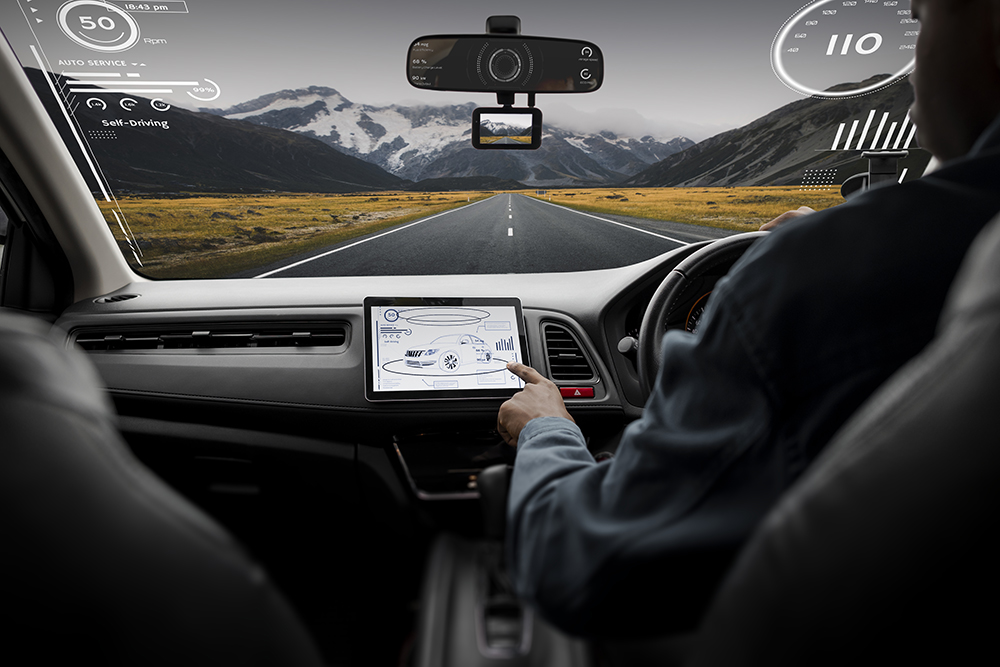
It’s a digital world, and even cars are getting tech-savvy. Dash cams sit right at the intersection of technology and law, capturing everything from scenic drives to legal evidence. You’re driving on the freeway when suddenly, there’s a fender-bender. It’s chaos and everyone’s pointing fingers. Between the turmoil, one impartial witness—the dash cam—captures everything.
These devices have evolved beyond mere travel recorders to become crucial evidence in the legal aftermath of car accidents. Offering a straightforward, unbiased narrative, where human memories might falter, dash cams are indispensable in determining truth and liability. They protect drivers and fundamentally shape the legal landscape, ensuring justice relies on more than just word of mouth. This blog post will discuss dash cams and their crucial role in car accidents.
What is a Dash Cam?
Dash cams are compact devices with high-definition cameras and storage systems designed to record continuous footage of a vehicle. They typically feature wide-angle lenses to capture a comprehensive view of the road ahead, and advanced models include rear-facing cameras to record incidents from behind. The technology underpinning dash cams often provides GPS tracking to log vehicle speed and route and accelerometers to detect sudden changes in motion—features crucial in reconstructive analyses post-accident.
The Importance of Dash Cam in Car Accidents
From a legal standpoint, dashcam footage acts like an impartial witness, giving crystal-clear evidence in case of accidents. It’s a game-changer when it comes to settling disputes where people have different versions of what went down. The objective nature of video footage helps accurately determine fault, which is essential for insurance claims and legal proceedings.
1. Impact on Insurance and Liability
Dash cams are integral in the insurance industry, significantly impacting liability evaluations and car accidents claim resolution. These gadgets give insurance companies top-notch footage, which helps to clear up any disagreements, cuts down on fraudulent claims and makes liability less of a guessing game; depending on the stories or memory of a witness. Some insurance companies actually provide drivers attractive discounts when they use dash cams effectively. It’s a win-win situation more people start using them, and it makes the roads safer overall.
2. Using Dash Cam Footage to Resolve Accident Disputes
Dash cams are essential in legal determinations of car accidents by offering undeniable evidence of incidents as they occur. This helps clear up the issue of liability; i.e. who is at fault. This digital testimony is crucial when the specifics of an accident or driver are contested. Dashcam footage delivers a precise, first-person account, facilitating the reconstruction of events, pinpointing liability, and potentially accelerating legal processes.
By way of example, dash cam recordings can verify the status of traffic signals, assess road conditions, and capture the conduct of other drivers, including compliance with traffic laws. Such detailed evidence is indispensable in hit-and-run incidents, where identifying the offending vehicle swiftly can expedite legal resolutions and ensure appropriate legal sanctions.
3. Enhancing Road Safety and Accountability
Beyond legal disputes, dash cams enhance road safety by encouraging drivers to adhere to traffic rules, knowing their actions are being recorded. This sense of being monitored can lead to more disciplined driving. Furthermore, dashcam footage is valuable for authorities to pinpoint areas prone to accidents.
This insight helps them devise better traffic management strategies, ultimately decreasing both the frequency and severity of accidents. Moreover, the footage from dashcams can be used by authorities to analyse accident hotspots and design better traffic control measures, ultimately reducing the frequency and severity of accidents.
Things to Keep in Mind When Using Dash Cams
- Legal Compliance: Before you start using your dashcam to record in public, check if it’s allowed under local privacy laws.
- Data Security: Protect the footage your dashcam records with strong encryption to prevent unauthorized access.
- Positioning: Properly mount your dash cam to capture clear views without obstructing your line of sight.
- Storage Management: Regularly manage storage capacity to ensure continuous recording; consider looping features that automatically overwrite old footage.
- Quality and Reliability: Invest in a high-quality dash cam with reliable performance to ensure it captures clear footage when needed.
Conclusion
Dash cams epitomize the critical intersection of technology and legal frameworks, serving as indispensable digital witnesses in vehicular incidents. These devices go beyond simple recording to provide a reliable foundation for legal judgments and insurance verifications. As advancements in technology continue to propel the development of dashcams, their role in shaping legal and safety measures will only expand. For experts at the intersection of tech, law, and automotive safety, mastering dash cam technology is essential for adeptly managing the complexities of today’s incidents. For expert legal assistance in vehicular incidents, contact SG Injury Law today and ensure your rights are protected.
